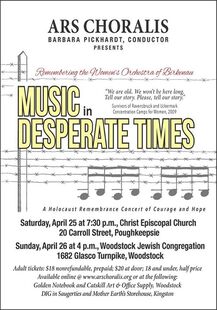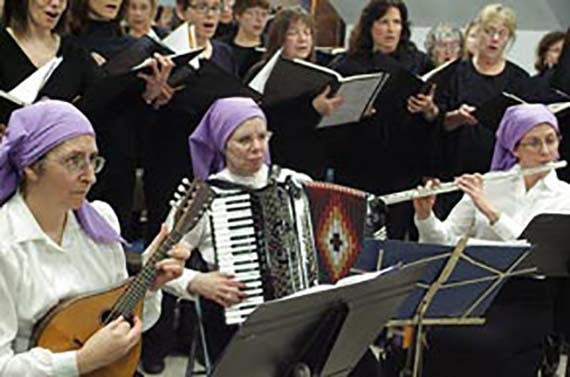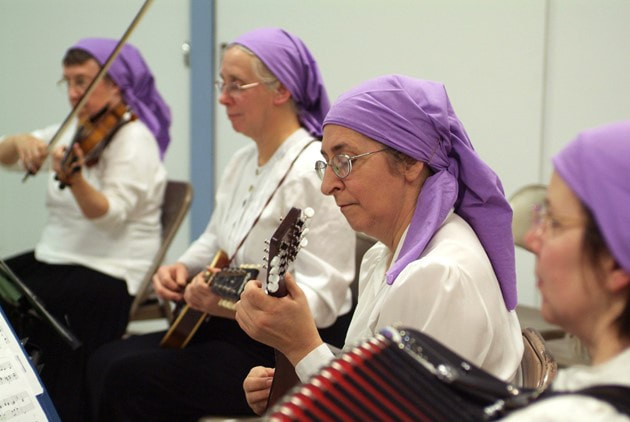 Now that I had made the decision to take on my granddaughter until her dad was able to care for her, I had to face the reality of the situation. My income was reduced because I could no longer take on the extra jobs I’d depended on. Childcare, although it was more than reasonable, was more than I could handle on my own. And, I still had a teenager at home who needed resources as well. I soon fell further and further into debt. Eventually I realized that here was no way out, so I filed for bankruptcy through legal aid. As long as I was dealing with them, I also filed for divorce from Paul Cavanaugh. I had never really wanted to get married in the first place, and divorce seemed like it would be expensive and unnecessary at the time. However, Paul was also incurring debt, and I didn’t want either of us to be responsible for the other’s debt. Both of these ended up being pretty easy and cost me nothing. Once I got the old debt erased, I was able to keep up with the current expenses, though the stress-free feeling about my finances was gone. I was teaching music at two different preschools, doing birthday parties here and there and giving a few piano lessons, but it wasn’t enough. I also started making beaded jewelry and selling it at craft fairs. This was something I could do while Tabitha was around. I could usually count on Justin to stay with her on a weekend. Then, a friend recommended me to a man who was self-publishing music books and needed someone to transcribe the music on computer, edit and proof the work. I went to the interview and got the job. He bought me the software for writing music, and I learned it quickly. Then, I also got a job writing the index for a non-fiction set of books about the anti-nuclear protests. That one was not so easy and quite tedious. But I was glad to have the work and learned a lot from both of those jobs. The music writing job lasted for years, and I also used the software to start transcribing my own music. I continued to find exciting new venues to play. Our local crowd had dwindled a bit, but I found that when we played out of town, we were well received with a large crowd coming to check us out. We played in Rochester, the Finger Lakes Region and a very cool art gallery in Connecticut that had once been a railway station. Everywhere we played, people asked if we had a music to sell. I’d never been able to do any major recording project, but we decided to start exploring our options. Then one day, I got a phone call from a woman in the Woodstock area. She was looking for a woman who played mandolin. I explained that I was just a beginner and really only played chords, but she insisted that I would be perfect for this gig. After a few more calls, I finally accepted the challenge. My policy has always been to say yes to any offer then figure it out later. This time, I felt that I was in way over my head and started immediately to try to figure out the notes on the strings. We didn’t get any music until just before the first rehearsal. I went to that first one with a friend who was also hired to play mandolin. The program was put on by Ars Choralis, a vocal group based in Woodstock. I was to be part of a recreation of the women’s orchestra from Birkenau concentration camp. All but one of the women in the camp had survived the ordeal by playing music for the Germans and for the prisoners who were marched off to work or to their deaths. It was a combination of beautiful vocal arrangements, readings from the journals of some of the original orchestra members and the orchestra playing some of the pieces that were played at the camp. The director, Barbara Pickardt, had found the original instrumentation as well as the journals. In the camp, they used whatever instruments were available. We had accordion, recorder, guitar, violins, mandolins, piano, flute and more. I found myself playing pieces such as Beethoven’s Fifth Symphony and Strauss’ Blue Danube Waltz on the mandolin. I had transcribed the written music into tablature since I didn’t read music for the mandolin. It took me more hours than I can count to figure out where each note was on the mandolin and tab it all out. Then, I had to learn how to play it up to tempo. At the second rehearsal, I went to Barbara and explained that it was far beyond my ability. She insisted that I stay on. She needed two mandolins and didn’t know where to find someone else. I offered to help with the search, but she refused. I was almost in tears. There was no way that I was going to be able to pull this off. I was playing alongside members of the Albany Symphony Orchestra and other professionals. I went home and practiced more than I ever had before. I even got my friend to help me. I did get better but still was out of my league. Once again, I tried to quit. Barbara explained that at the camp, there were women who didn’t play at all but had to learn if they wanted to survive the ordeal. The women in that orchestra all played at different levels and helped each other learn. Some of them did the transcribing because they didn’t really play at all. So, I ended up sticking with the orchestra and played four shows that year. It was a grueling experience for all of us because of the deep emotions we all felt. The women in the camp were made to wear lavender scarves because the sight of their shaved heads disturbed the Germans. Many of us didn’t get through the first rehearsal where we wore those scarves without breaking down. I kept wondering what I would have done in the same situation and realized that the music would keep me alive not only in physical ways such as a little better treatment, but in a spiritual way. When I play music, I’m able to escape into that and leave everything else behind for that short time. All of the shows were incredibly well received, and we repeated them the next year. Then a couple more years went by, and in 2009, I was asked to do it again. This time, I was told that we would perform two shows in the Hudson Valley then one at St. John the Divine’s in New York City and two shows in Germany. I couldn’t believe it. I was going to be going to Europe, my first trip off the continent. I arranged for a few mandolin lessons because I wanted to be better prepared. I was still a lesser player, but I was better than before. My travel was paid for, and I was able to get Dick a discount for him to travel with us. We decided to extend our trip so that we could visit friends in Switzerland, and they arranged a house concert for us there. I had my mandolin, and Dick brought a guitar. We each played both instruments and were able to switch back and forth. It was an amazing opportunity that we jumped at. I soon made arrangements for Tabitha with the village that had been helping to raise her. She spent a few days at a time with the various families that she was already comfortable with, and I would call her at least once at each place. I felt slightly guilty for leaving her but knew I had to follow my own path. It would be the first time in too many years that I had traveled without a child. Dick and I were both excited about this trip. He had enlisted in the army during the Viet Nam conflict to avoid the draft and ensure a better position. He ended up being stationed in Berlin, Germany in a very cushy job with his own apartment and a car. He had special clearance and had been able to go across the border into East Germany as often as he wanted without being searched by the Russian soldiers. He had never been back, but now he was going to be able to see the changes that had taken place after the wall came down and trip down memory lane. The flight was long and uncomfortable. We traveled at night, but I was too excited to sleep. Once there we had a busy itinerary. We checked into the hotel and were taken on a tour immediately. At the end of the tour, Dick and I decided to walk back to the hotel from the last stop. I had no idea how far it was, and ended up walking many miles, stopping frequently along the way. By the time we arrived at the hotel, it was already time for dinner. Then a bunch of us went out to a bar. I slept well that night and was able to sleep in a little in the morning before another tour and our rehearsal. We played one show at a Lutheran Church in Berlin then went northeast to Ravensbrück camp in Fürstenburg for their liberation anniversary ceremony. We stayed at the camp in the SS barracks and got a tour of the camp before playing in one of the workhouses. We saw the inmates’ barracks, the hospital, the torture devices, the crematorium and the lake where the ashes were dumped. We were told about the townspeople who mostly stood by and let it happen and about the few who tried to help. It was very moving when one of the original orchestra members came to the show in New York City, but playing at the camp was intense. We all felt like we were playing for ghosts. It was incredibly eerie. Many survivors from that all-women’s camp came and cried throughout. Afterwards, I needed time to decompress before joining the crowd for food, drink and mingling. The next day I wrote two poems. Fürstenburg (8/14/09)
Across the lake, the sentinel stands Witness to the atrocities that have come before He stands silent now as they were silent then, and then silenced forever. But who will cry out? Who will tell their stories? *** Layers of ashes at the bottom of the lake Ripple and roil as if crying out, “We are dead but never gone. Tell our stories! Sing our song! You must never forget! We must never forget. *** The sentinel stands, silent as ever, Knowing that time passes. The crucifix atop his long arm reaching up and up out across the ages and seems to laugh, Reminding us of all the horrors committed in the name of God, in the name of Nations. *** But that was then, and this is now, Now I sit and wonder what’s really changed? And do we still remember? And will we remember tomorrow? Who tells us to forgive and forget? “To err is human; to forgive divine.” *** I forgive and forgive and forgive again, But I will never forget. Will you? I hear the voices of the dead and of the living. I see their faces when I close my eyes. Sometimes I dream their dreams late at night. And across the lake, the sentinel stands, watching and waiting. watching and waiting. _______________________________________________________________________ ‘Til the End of My Days (8-14-09) Music is my life. Without it, I might die. My body may stand an empty shell With no spirit, only flesh and bones. *** They say I sang before I spoke. This is easy to believe For I still sing my way Right through my life. *** You may sing in showers I sing memories, dreams and conversations. I’ve sung my children to sleep, I’ve sung my grandchildren to sleep. *** I’ve sung weddings and funerals. I’ve sung politics and education. I hope I will sing ‘til the end of my days. *** I sit in my comfortable house With my comfortable family In my comfortable neighborhood And think about the women’s orchestra of Birkenau *** Forced to play for executions, roll calls, For workers marching off to forced slave labor, new arrivals sent off to be gassed For the pleasure of their sadistic captors. *** Hated by some Facing the condemned daily While knowing their preferential treatment Increased their chances of survival. *** Given the same choice Would I sing for my tormentors? I would live and I would sing. I would sing ‘til the end of my days.
0 Comments
Your comment will be posted after it is approved.
Leave a Reply. |
Archives
January 2024
Categories
All
|



 RSS Feed
RSS Feed